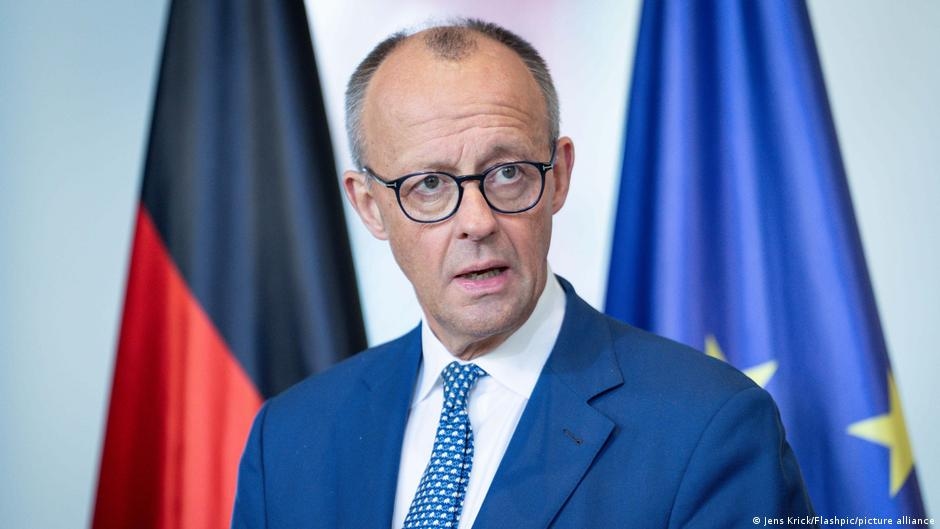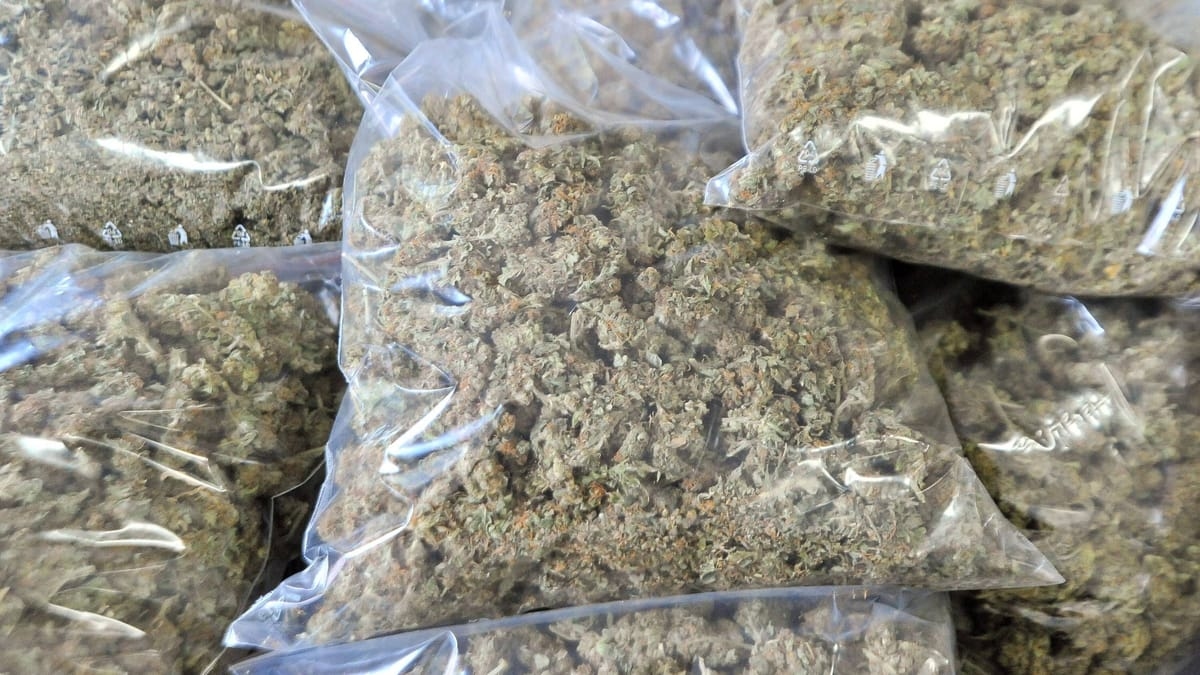Chancellor Merz at steel summit: "Existential crisis"

At a steel summit in the Chancellery in Berlin, representatives of Germany's steel industry, several state premiers, and numerous government officials met with Chancellor Friedrich Merz . The aim was to coordinate concrete steps to strengthen the sector and secure jobs. The Chancellor had invited both business leaders and employees.
Speaking to the press afterwards, Merz stated that the discussion had resulted in "complete agreement – including the conclusions to be drawn from it." He said it concerned "the fate of a key industry." The companies were in an "existential crisis" that required a multi-pronged response. This included prioritizing domestic products.
Jaroni: No German tax billions for manufacturers from AsiaThe new CEO of Thyssenkrupp Steel, Marie Jaroni, had called for quotas for German steel ahead of the summit. The billions that the government is investing through the infrastructure package "should be linked to the requirement that steel from the EU is used primarily," Jaroni told the Rheinische Post before the meeting at the Chancellery. "It can't be that the billions of German taxpayers' money end up mainly with manufacturers from Asia."

Two questions in particular are preoccupying politicians and industry: How can German steel remain competitive? And how can production become more climate-friendly? Steel producers have been suffering for years from high energy costs and cheap competition from the Far East.
The EU Commission has proposed protecting the domestic steel industry from dumping imports from countries like China by imposing significantly higher tariffs – a doubling to 50 percent is under discussion. In addition, the quantity of duty-free imports is to be almost halved.
Industrial electricity price coming in 2026The German government intends to provide relief to businesses regarding energy costs. An industrial electricity price is scheduled to be introduced in Germany on January 1st; it still requires approval from the EU Commission, which the government expects to receive. Government investment will then noticeably reduce electricity prices for energy-intensive companies. This cost relief would primarily benefit production using the electric arc furnace process and further processing in rolling mills.
Furthermore, there are plans to extend the so-called electricity price compensation beyond 2030. This indirectly relieves companies of the costs of CO2 trading.
Under current EU regulations, it would not be practically possible for companies to benefit from both forms of aid – the electricity price compensation and the industrial electricity price. The German government could advocate for a change at the European level. Relief measures regarding electricity grid fees have already been approved for next year – although the steel industry is insisting on a permanent reduction.
Hydrogen instead of coal and cokeWith a view to climate protection, steelworks are aiming for a growing proportion of "green" hydrogen, which is produced on the basis of renewable energies - or, alternatively, "blue" hydrogen, which is produced using natural gas.
The problem: "Green" hydrogen is still very expensive and not available in sufficient quantities. In any case, its use is more environmentally friendly than that of coal and coke: Instead of the greenhouse gas carbon dioxide (CO2), water comes out of the blast furnace chimneys.

Traditional pig iron production in blast furnaces requires a large amount of carbon – for example, in the form of coke. This not only provides heat but also removes oxygen from the iron ore, a process called reduction. Currently, around 70 percent of pig iron is produced in blast furnaces. The remaining 30 percent is produced by melting down scrap metal in large, electrically powered furnaces.
Wires, sheets, rods, pipesThe steel industry plays a central role in the German economy. Steel is used as a raw material primarily in the automotive and mechanical engineering sectors, the construction industry, and also in the production of household appliances. More than 2,500 grades of steel are available, from which wires, sheets, bars, tubes, and rails are produced.
Around 80,000 people are directly employed in steel production plants. The largest suppliers are Thyssenkrupp , Salzgitter, ArcelorMittal, Dillinger, and Saarstahl. According to the German Steel Federation, approximately four million people work in the next stage of the value chain, in so-called steel-intensive industries.
Duisburg leads in the quantity rankingIn 2024, Germany produced just over 37 million tons of crude steel. This was the third consecutive year that the figure remained below the 40 million ton mark, the level at which the industry defines a recession. Most of the steel is produced in Duisburg, in the western German state of North Rhine-Westphalia . Overall, Germany is by far the largest producer of crude steel in Europe, accounting for more than a quarter of EU production (nearly 130 million tons).
In terms of volume, Germany ranks seventh worldwide. China topped the list by a wide margin in 2024 (1,005 million tons), followed by India (149 million tons). The German government wants to support the industry partly because, without its own steel industry, Germany would be dependent on countries like China and therefore more vulnerable.
jj/AR (dpa, afp, rtr)
dw



